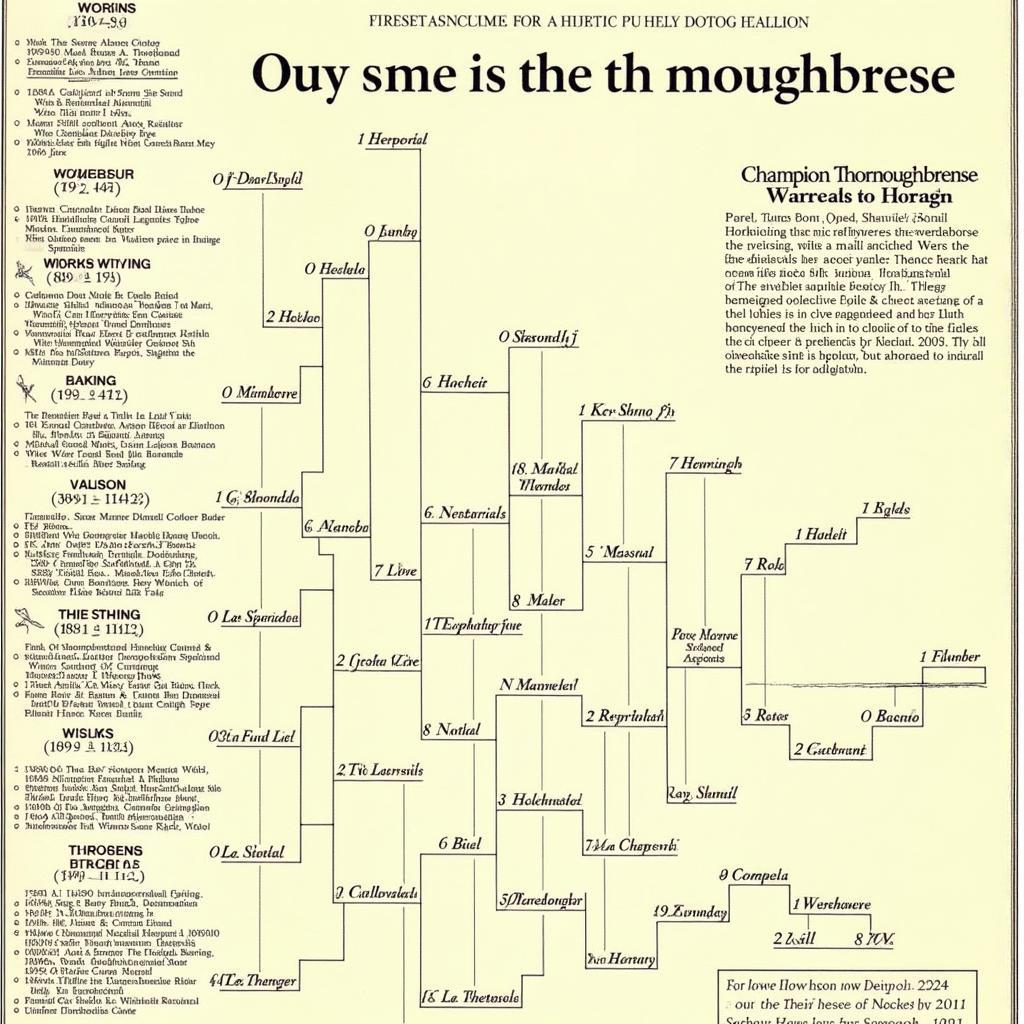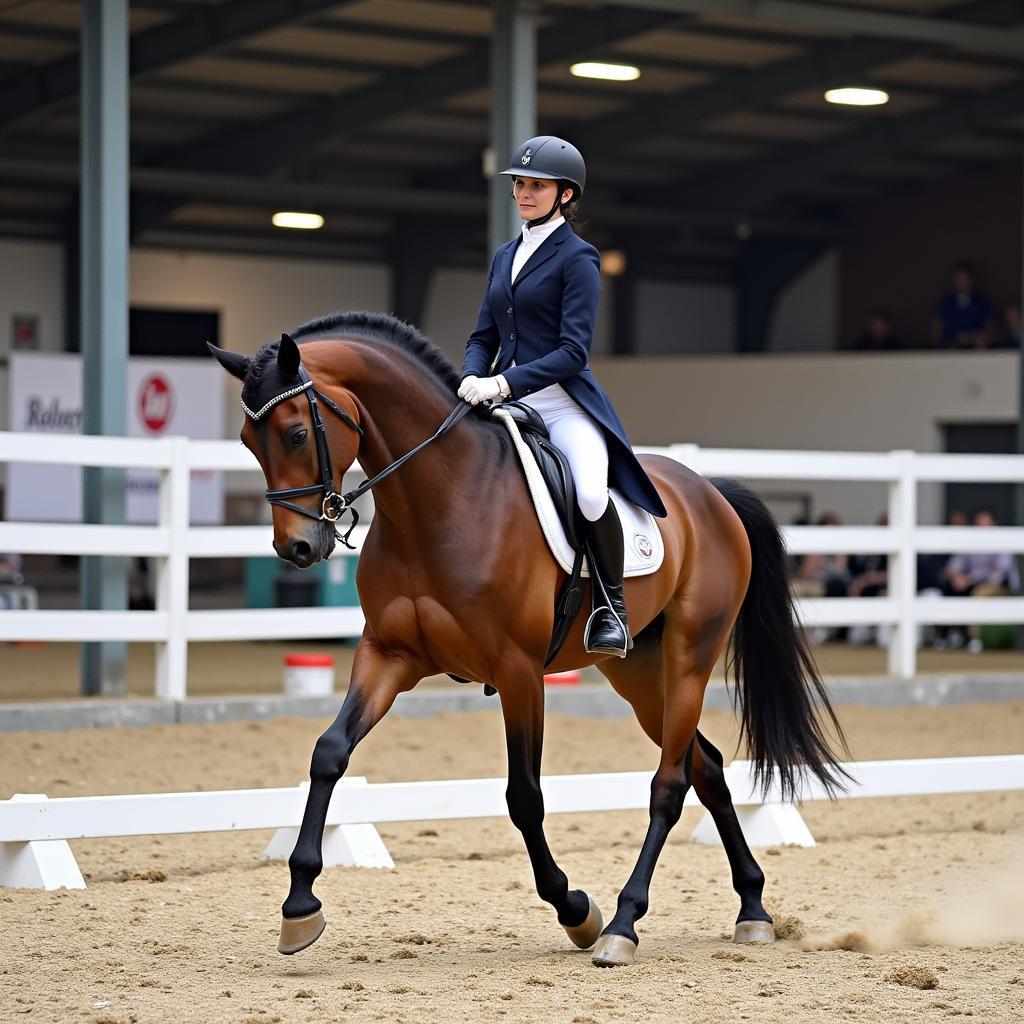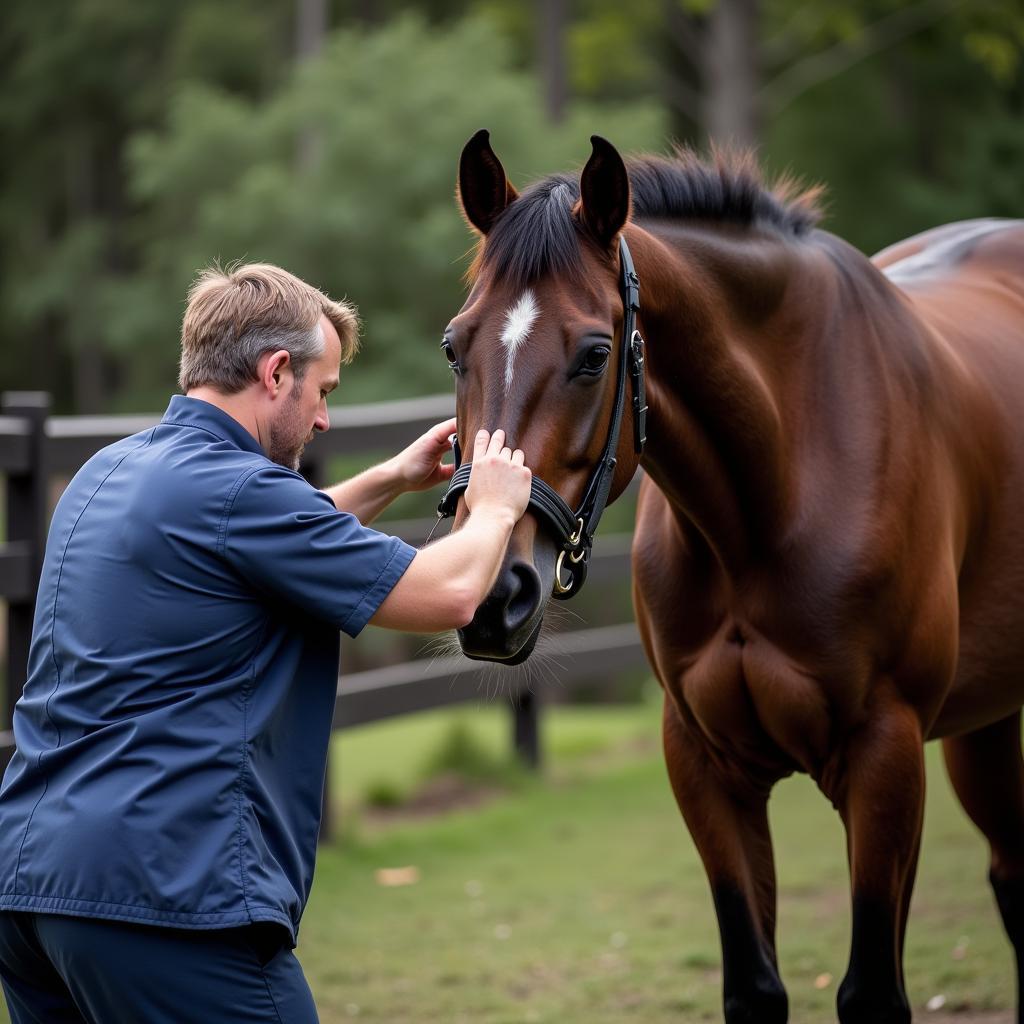High Performance Horses are more than just athletes; they’re the culmination of meticulous breeding, training, and care. These equine stars excel in disciplines demanding speed, agility, and unwavering focus. Whether it’s the thunder of hooves across a racetrack or the graceful dance of dressage, high performance horses captivate us with their power and precision. But what makes these animals so extraordinary?
The Making of a Champion: Breeding for Excellence
The journey towards high performance often begins with carefully selected bloodlines. Breeders analyze pedigrees, scrutinizing generations for traits like speed, stamina, and temperament.
 Thoroughbred Racehorse Pedigree Chart
Thoroughbred Racehorse Pedigree Chart
For example, Thoroughbred racehorses, renowned for their speed, often descend from legendary sires like Northern Dancer and Secretariat. Their bloodlines carry the genetic potential for exceptional cardiovascular capacity and muscular development.
Beyond Genes: Training Regimes that Transform
While genetics lay the foundation, rigorous training sculpts a high performance horse. Expert trainers employ a blend of classical and modern techniques, focusing on:
- Physical Conditioning: Customized exercise programs build strength, endurance, and flexibility, tailored to the specific demands of the chosen discipline.
- Skill Development: Hours of dedicated practice hone the horse’s natural athleticism into refined movements, whether it’s mastering a flying lead change or executing a perfect piaffe.
- Mental Fortitude: High-stress competitions require unwavering focus. Training includes desensitization exercises and confidence-building routines to prepare horses for the pressures of competition.
 Dressage Horse and Rider Training in an Arena
Dressage Horse and Rider Training in an Arena
Fueling Champions: The Crucial Role of Nutrition
High performance horses have unique dietary requirements to support their demanding lifestyles. Their feed programs often include:
- High-Quality Forage: The foundation of their diet, providing essential fiber for digestive health.
- Concentrated Energy Sources: Grains like oats and corn deliver readily available energy for intense workouts and competitions.
- Performance Supplements: Carefully selected supplements address specific needs, such as joint support, muscle recovery, and electrolyte balance.
A Lifelong Commitment: Maintaining Peak Condition
Achieving high performance is an ongoing endeavor. Owners and caretakers play a vital role in maintaining these equine athletes at their best.
 Veterinarian Conducting a Thorough Health Check on a Performance Horse
Veterinarian Conducting a Thorough Health Check on a Performance Horse
Regular veterinary care, including vaccinations, dental checkups, and lameness evaluations, ensures early detection and treatment of potential issues. Furthermore, meticulous hoof care, including regular trimming and shoeing, is paramount for maintaining soundness and preventing injuries.
Conclusion: A Testament to Partnership and Dedication
High performance horses embody the pinnacle of equine athleticism, achieved through the synergy of exceptional breeding, rigorous training, and unwavering dedication from owners and caretakers. These remarkable animals inspire us with their power, grace, and the profound bond they share with humans. Understanding the intricate elements that contribute to their success allows us to appreciate the true champions of the equestrian world.
FAQs about High Performance Horses
1. What breeds are considered high performance horses?
Many breeds excel in specific disciplines. Thoroughbreds are known for racing, Warmbloods dominate dressage and show jumping, while Quarter Horses are renowned for their agility in Western riding events.
2. How long does it take to train a high performance horse?
Training is an ongoing process, but it typically takes several years of consistent work to develop a horse for high-level competition.
3. What are some common injuries in high performance horses?
High-impact activities can lead to injuries such as tendon and ligament strains, joint problems, and hoof-related issues.
4. What is the average lifespan of a high performance horse?
With proper care, many performance horses live well into their twenties. However, their competitive careers often peak between the ages of 8 and 15, depending on the discipline.
5. How can I learn more about caring for a high performance horse?
For more information and resources, explore our other articles on expensive Breyer horses, Breyer unicorn horses, and Breyer horse sets. You can also find helpful information on Breyer horses with a dapple grey coat or explore specific models like the 2002 Breyer holiday horse.
Do you have more questions about high performance horses? Need personalized advice? We’re here to help! Contact us at 0772127271, email us at [email protected] or visit our location at QGM2+WX2, Vị Trung, Vị Thuỷ, Hậu Giang, Việt Nam. Our dedicated team is available 24/7 to assist you with all your equine needs.